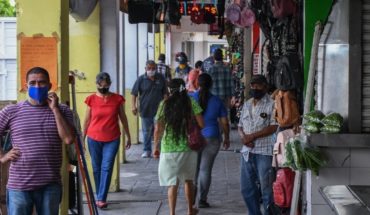
Long working hours, lack of personal protection, lack of social protection and exposure to health risks in the context of the current pandemic, are some of the main labor vulnerabilities faced by workers of digital work platforms (PDT), in Santiago de Chile, according to a new study released by the International Labor Organization (ILO).
The results reflect that workers value the relative flexibility in the selection of schedules and places of work, and for many this work is their main source of income.
Among the main vulnerabilities and job insecurity faced by platform delivery drivers would be strenuous working hours, physical and personal insecurity (especially road safety), stress, lack of social protection (almost half of delivery drivers say they do not have access to health insurance) and exposure to health risks.
Regarding the income received, 51% consider the payment unfair, and highlights the perception that the payment does not coincide with the high risk they face.
This situation would have worsened with the current Covid-19 crisis. Although these workers have been considered essential in the context of the pandemic, and their situation has become more visible, the workers surveyed indicate that working conditions have not improved and that in the first months of the pandemic it was even more critical due to the health risk and the drop in income they experienced.
Fabio Bertranou, director of ILO Southern Cone, stressed that the study “seeks to contribute to the current debates by gathering the vision of those most affected by business models enhanced by the development of new technologies (…) Understanding the work practices and experiences of these workers is fundamental to addressing the debate on the regulation of these “new forms” of work.”
The study describes the diverse experiences, difficulties, expectations and motivations of delivery drivers working in the so-called platform economy in Chile and the impact that the pandemic has had on their work.
Another issue addressed in the report is that of regulation. According to the national regulatory framework, platform delivery drivers are considered as independent workers by the “terms and conditions” they accept when downloading the application and activating their accounts to start operating as delivery drivers. According to the survey, 83% of delivery drivers agree with the “self-employed” classification. However, this , they say, does not mean a renunciation of demands for more and better protections and benefits.
In this regard, the ILO has reiterated the need to promote and improve the conditions of these workers through effective social dialogue between the various parties involved. It also promotes regulatory cooperation, which allows for more coherent action for decent work opportunities.
The report “Platform economy and transformations in the world of work: The case of delivery drivers in Santiago de Chile”, prepared by ILO consultants Antonia Asenjo and Alberto Coddou, was made on the basis of the first face-to-face survey of 259 workers of delivery work platforms and 50 workers who perform this type of work by other means , and a follow-up survey implemented by telephone during the COVID-19 pandemic.





